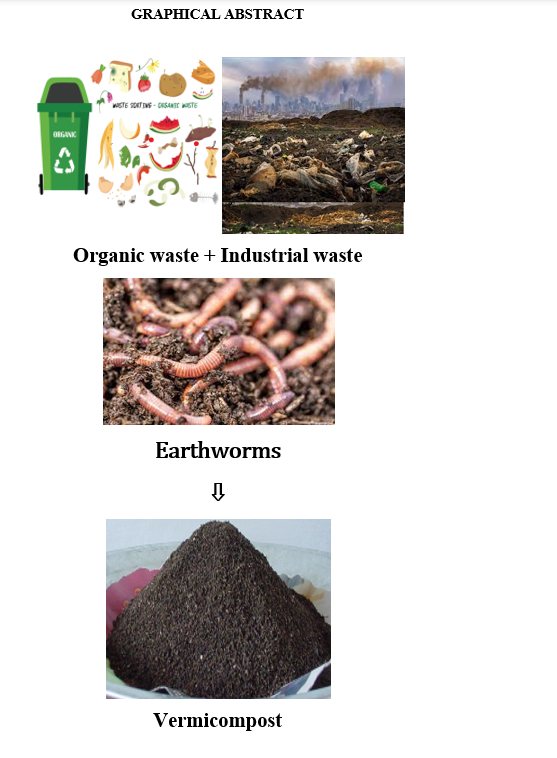
Vermicomposting is a mesophilic biooxidation and stabilization process of organic materials that involves the joint action of earthworm and microorganism. An experiment was conducted to prepare vermicompost using partially decomposed organic waste such as MSW, fruit waste, vegetable waste and yard waste by employing indigenous earthworm species. This research has been done for reducing the environmental issues, pollution problems due to solid waste and industrial waste i.e., wastewater and sludge by converting it into compost by using earthworms very successfully and economically. Non-toxic and organic industrial wastes could be potential raw material for vermicomposting. In the past few years, vermicomposting has been used for the management of industrial wastes and sludges and to convert them into vermicompost for land restoration practices. The earthworms used were Eudrillus euginea. In this study the industrial sludge and effluent from dairy industry was mixed with organic waste with different ratio. This process was done under the controlled conditions of pH, moisture content and temperature. In this process partially decomposed organic waste were broken down and fragmented rapidly by earthworms resulting in a stable non-toxic material with good structure which has a potentially high economic value as soil conditioner for plant growth. The results reveal the increased nutrient content, increased worm population and decreased processing days of the waste in the order of dairy waste with organic waste. The main objectives of this study include to find viable management techniques for organic as well as industrial waste and to make a detailed analysis of the route of stabilization with observations such as temperature, pH, EC, COD, TS, VS, AC and C/N. and to produce good quality biofertilizer fixed by nutritive values.
Total file downloads: 20